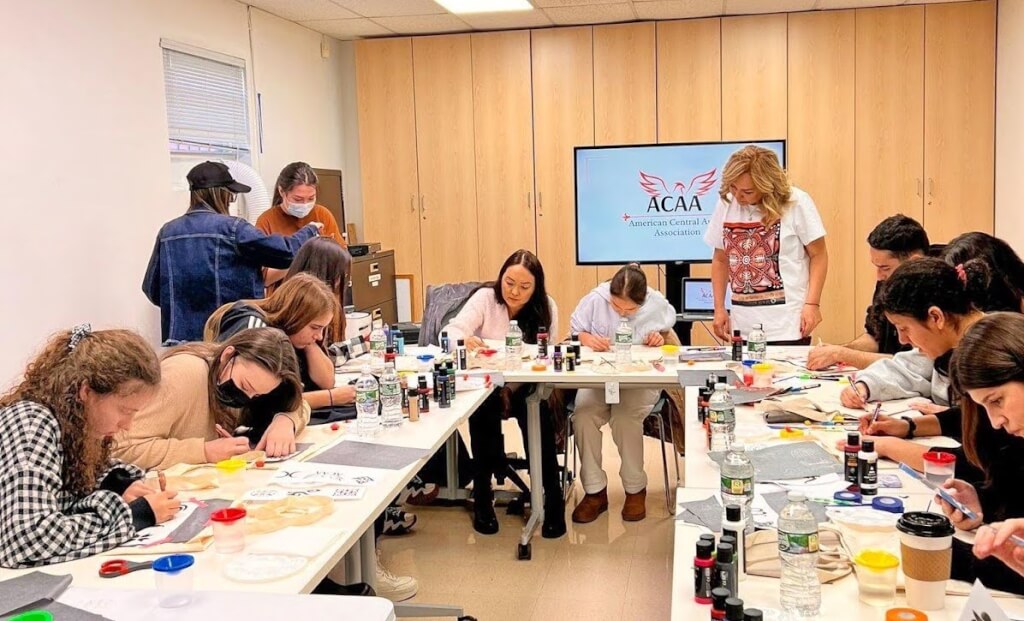How sanctions against Russia killed a promising startup in New York
'03.06.2022'
Nadezhda Verbitskaya
On the morning of Feb. 24, Yusuf Alabi-Ajidagba, head of retail at American fast food delivery startup The Buyk, was in a Houston hotel room. He was preparing a plan to expand the company when he saw footage of Russian missiles attacking Ukraine on CNN. The Washington Post.
By 11 a.m., he was on a video call in which chief executive James Walker assured employees that there would be no financial implications for The Buyk. Although the co-founders and the parent company were Russian.
“No one suspected that we would not have a job,” said Alabi-Ajidagba. “I don't think anyone knew what the sanctions meant. Nobody believed it would affect the world the way it did.”
But within 16 days, The Buyk filed for bankruptcy and laid off all of its 900 employees. Its rapid collapse demonstrates a globalized start-up system that has proven particularly vulnerable to US sanctions against key Russian figures and financial institutions in the aftermath of the invasion of Ukraine.
For many Americans, sanctions can conjure up images of agents raiding an oligarch's half-billion-dollar yacht. Or putting a Premier League football team up for auction.
But economic sanctions can be a crude tool to punish civilians along with the rich and powerful.
The unprecedented depth and speed of U.S. sanctions for invading Ukraine has disrupted the lives of not only ordinary Russians, but also office workers and couriers stationed in New York and Chicago.
For these workers, the sanctions were triggered by the usual actions: a phone call, a chat on WhatsApp or Telegram. And then a lack of pay as The Buyk was cut off from its financial lines.
The Buyk was the American subsidiary of Samokat, one of Russia's most popular grocery delivery services. The Buyk launched in New York in September 2021 and Chicago in December. And by the end of 2022, it planned to serve Boston, Houston, Miami and Los Angeles.
Although the company was registered in the United States, co-founders Vyacheslav “Slava” Bocharov and Rodion Shishkov were also founders of Samokat.
The Buyk began to fall apart on February 24 when the United States immediately attacked 10 of Russia's largest financial institutions, cutting off Sberbank from the US financial system. Actions against Sberbank proved fatal - they deprived The Buyk of a source of funds at a critical moment in its development.
Although Bocharov and Shishkov are not included in any sanctions list, the actions against Sberbank have affected their ability to continue financing the business. So did the banking restrictions imposed by Putin on February 28, which prevented residents from sending money to bank accounts abroad. Bocharov did not respond to a WhatsApp message asking for clarification on the company's structure and funding relationship.
On the subject: One of the Russian startups closed in New York: sanctions left the investor without money
Before launching, The Buyk raised $46 million from CM Ventures, Fort Ross Ventures and Citius, venture capital firms with connections in Russia. Sberbank was a lead investor in Fort Ross and helped launch a venture capital company in Menlo Park, California in 2015.
Former CTO of Sberbank Viktor Orlovsky, now managing partner of Fort Ross, previously said in an email: “We are taking all necessary measures to isolate and terminate any relationship with any investor subject to sanctions, if required by regulations.”
Food delivery startup Friday No More, which had Russian founders and investors, closed on March 10, laying off all 600 employees.
On March 3, a week after the invasion, The Buyk's director of learning, Saren Stiegel, visited eight stores in Chicago. News of the invasion hung over the company like a dark cloud, she said, because there were Ukrainian and Russian workers there. But that Thursday, she noticed members of the Russian team leaving group messaging chats.
Twenty-four hours later, she was fired, along with 98% of the rest of the company's employees. For Stiegel, it was a shock - she was promoted just two weeks ago. She saw no connection between the company and the invasion.
“We are an American company, right? Money in Russia? It has nothing to do with the oligarchs,” she said.
In a company-wide phone call, Walker, the chief executive, told workers that he was trying to find funding to save the company.
On Saturday, March 5, supply chain consultant Britten Ladd struck up a conversation with Walker and investor Stefan Shimenes, with whom he was already working on a package delivery company, in hopes of buying or investing in Buyk. Walker also approached Grubhub to invest, but The Buyk collapsed before the deal was completed. “Given the news, we have completed our project,” Grubhub said in a statement.
According to Ladd, after 72 hours of negotiations, he backed out because he was unable to raise $20 million. Another investor left in part over concerns about ties to Putin's government.
On March 11, Walker fired employees and informed them that the company was filing for bankruptcy.
On March 17, the company filed for a Chapter 11 reorganization, citing the inability to obtain funding from its founders.
“Sanctions were not a problem as none of our investors, banks or any of our founders were directly sanctioned. It’s about Putin’s restrictions on Russian banks being able to send money outside of Russia,” Walker wrote in an email.
“If you're a courier making $17 an hour, you don't care if it's US or Russian sanctions,” Alabi-Ajidagba said. “It was painful.”
For most employees, the loss of a job meant the loss of childcare, the loss of transportation, the inability to pay rent. Some employees showed articles about the collapse of the company to landlords in the hope of getting a rent extension. Alabi-Ajidagba said he had to change his lifestyle and stop sending money to support his family in Nigeria.
Ladd said he noticed anti-Russian sentiment among potential investors
Many The Buyk employees are still trying to find work.
Sanchez, a courier from Chicago, returned to work as a loader. But he was forced to take out a loan because he owed rent. Alabi-Ajidagba said he was waiting for the right opportunity. Stiegel, a single mother, starts her own company, Vokly, to train employees rather than work at another startup. She admitted that she was in a state of shock immediately after the company closed: “The wrong people lost their jobs.”







